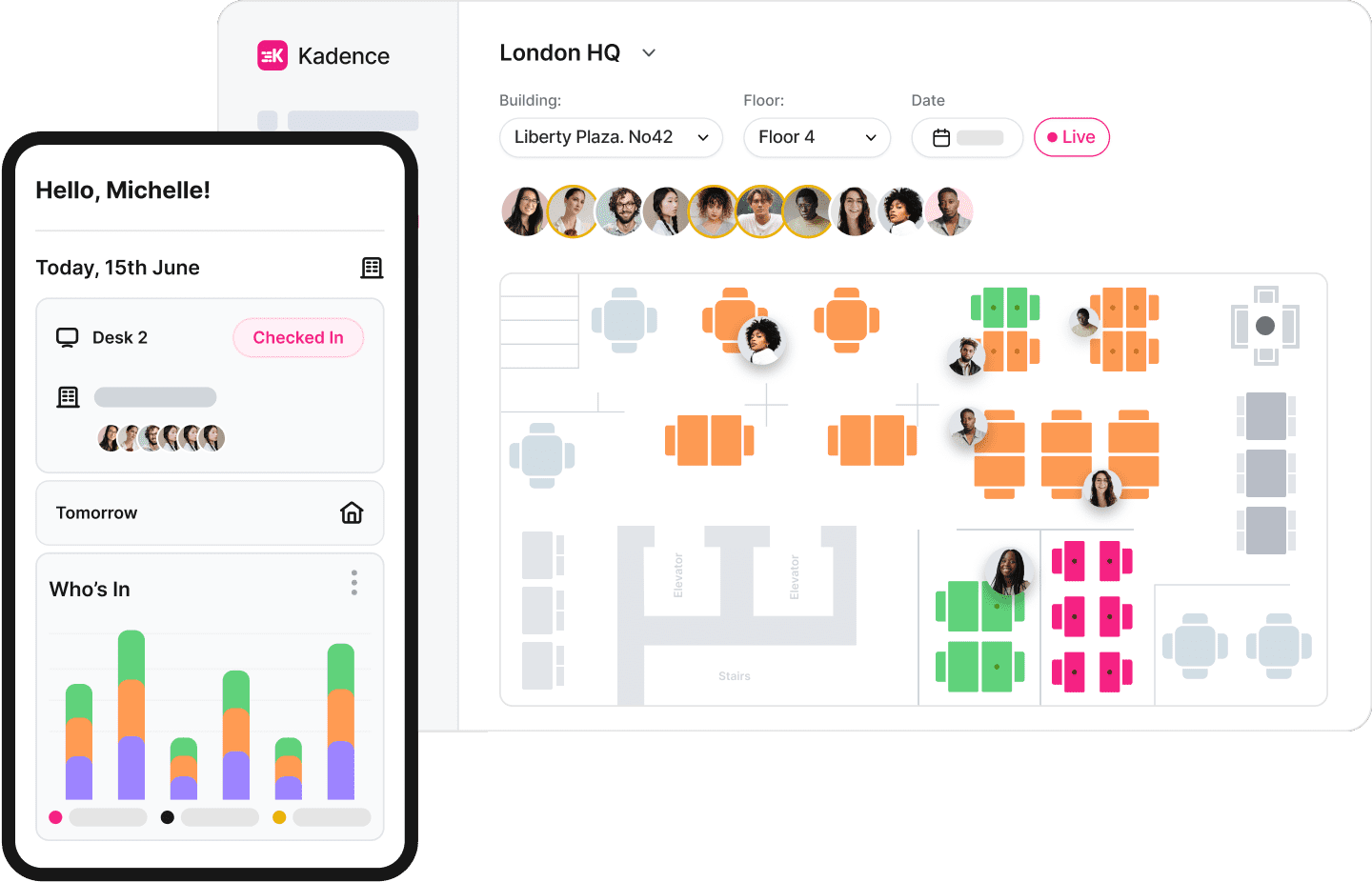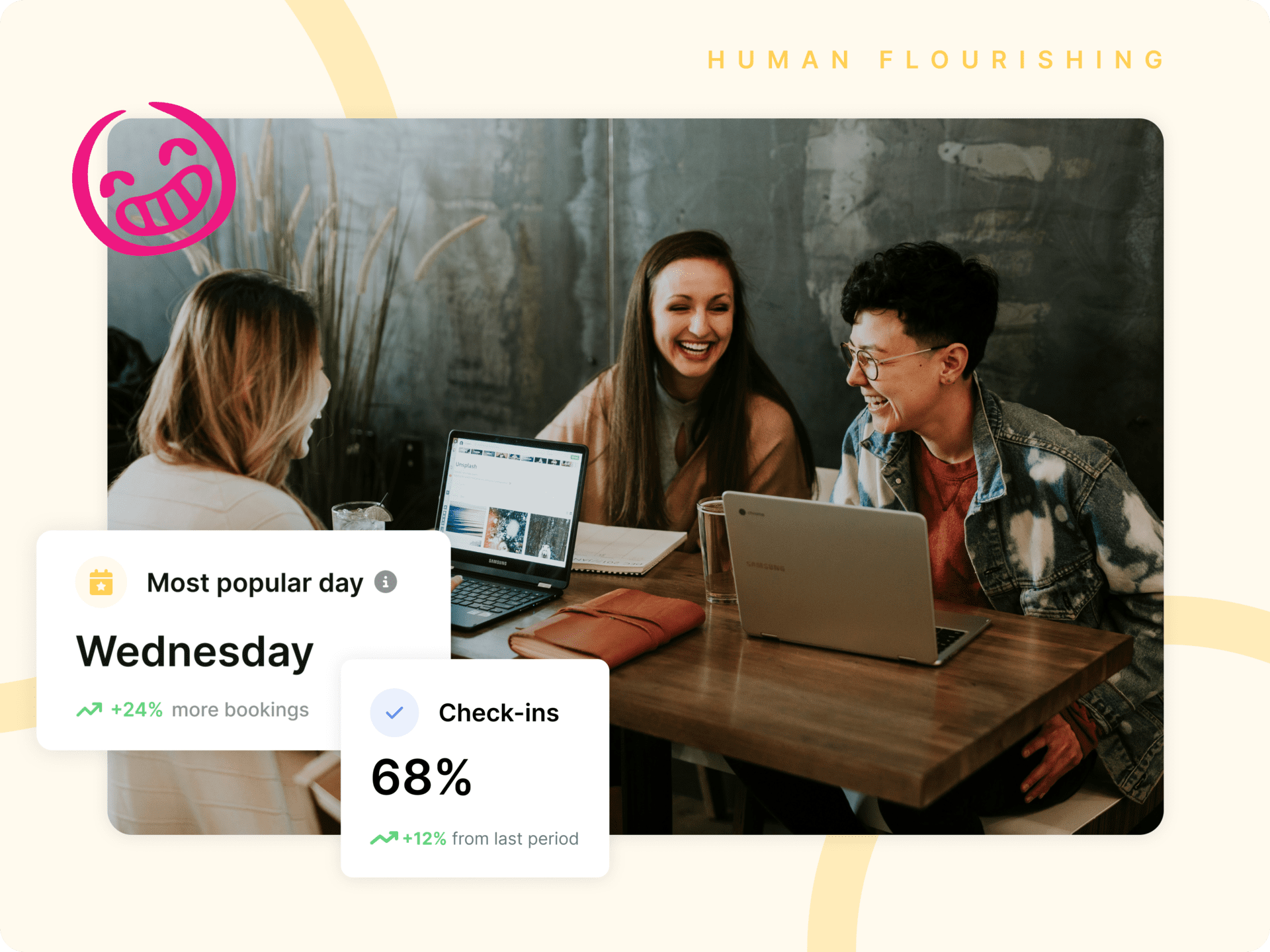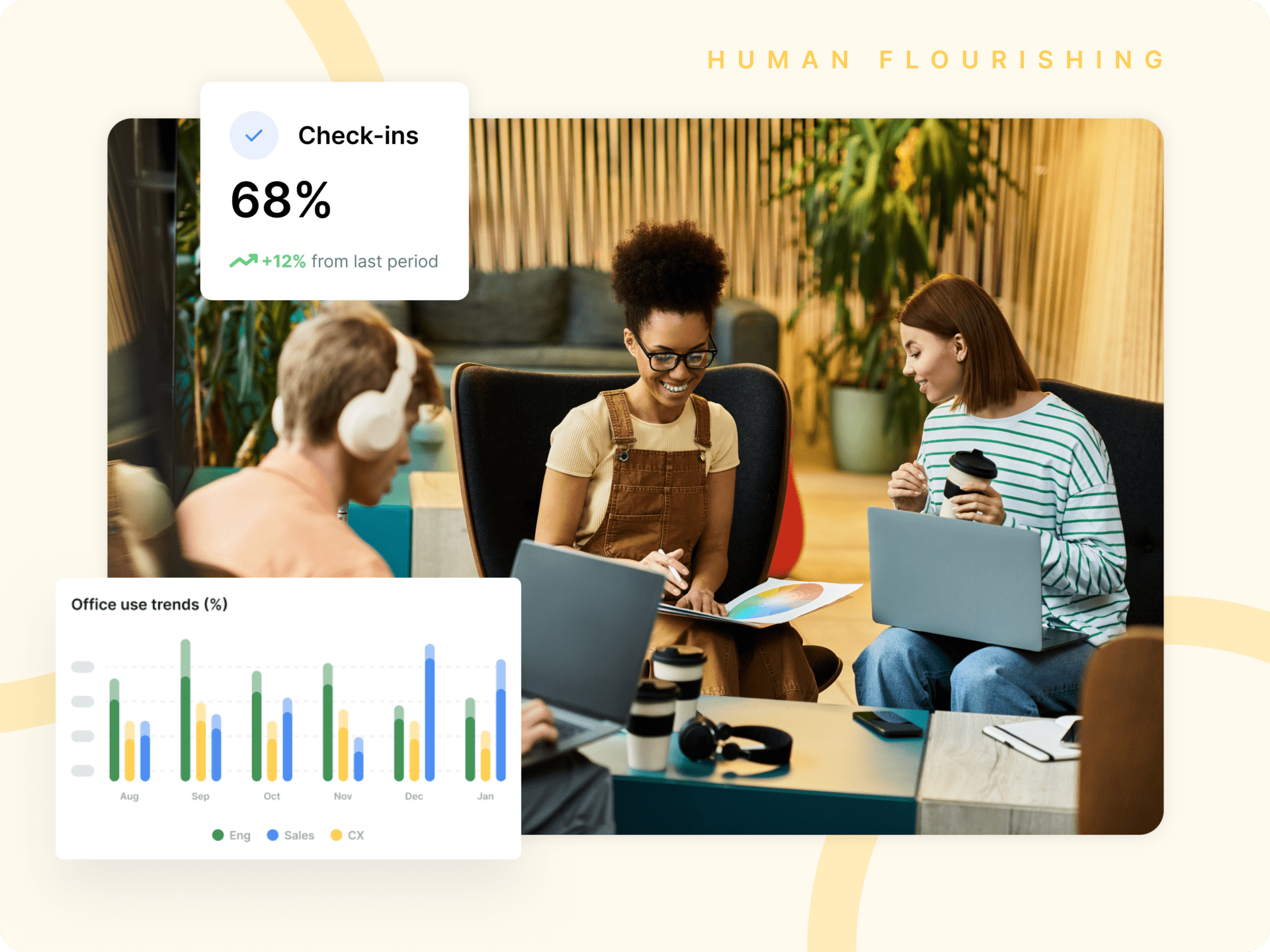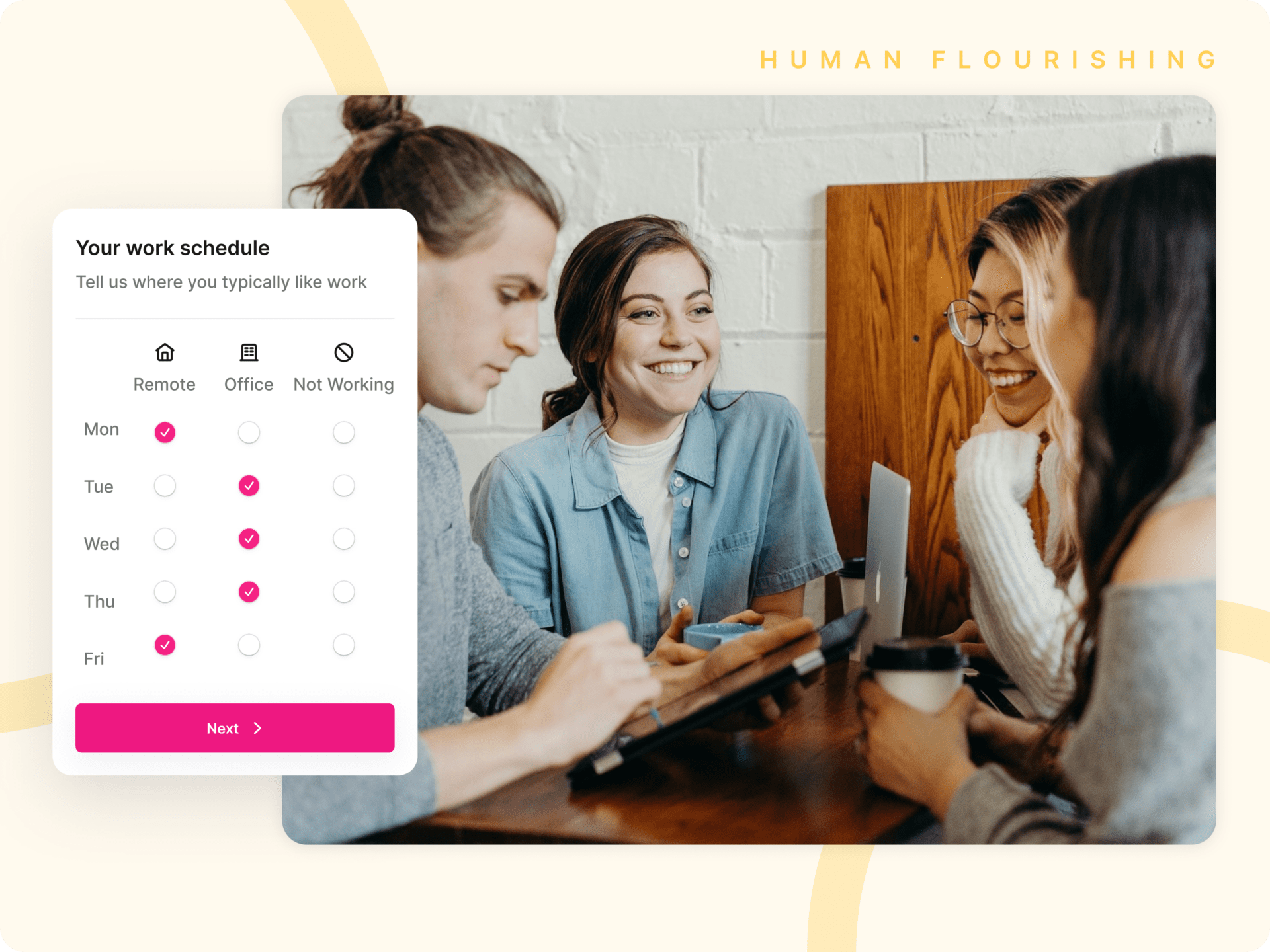When the pandemic hit, remote work was a necessity. Fast forward a few years, and it’s clear: the way we work has changed for good. Yet, despite this shift, many companies are rolling out a return to office mandate, pushing employees back into cubicles and commutes. Spoiler alert: it’s not going well.
Nearly three-quarters of executives admit that RTO mandates are stirring up conflict within their leadership teams. Employees, meanwhile, are voting with their feet—opting to leave rather than lose the flexibility they’ve grown to love.
In this guide, we’ll unpack why rigid RTO policies don’t work, dive into the perspectives of employers and employees, and show how embracing flexibility can be the win-win solution. Plus, we’ll share how Kadence can help you ditch the drama and create a workplace that actually works for everyone.
The Current Landscape of Return-to-Office Mandates
The Great RTO Debate
Return to office mandates are all over the map. Some companies are going full force with strict in-office requirements. Others are taking a more flexible hybrid approach. And then there are those brave enough to stay fully remote, betting on long-term flexibility as their competitive edge.
The problem? Forcing employees back often backfires. A recent study found that a return to office mandate doesn’t significantly improve company performance—no spikes in profitability or stock valuation here. What they do lead to is a big dip in employee job satisfaction. Not exactly the outcome leaders are hoping for.
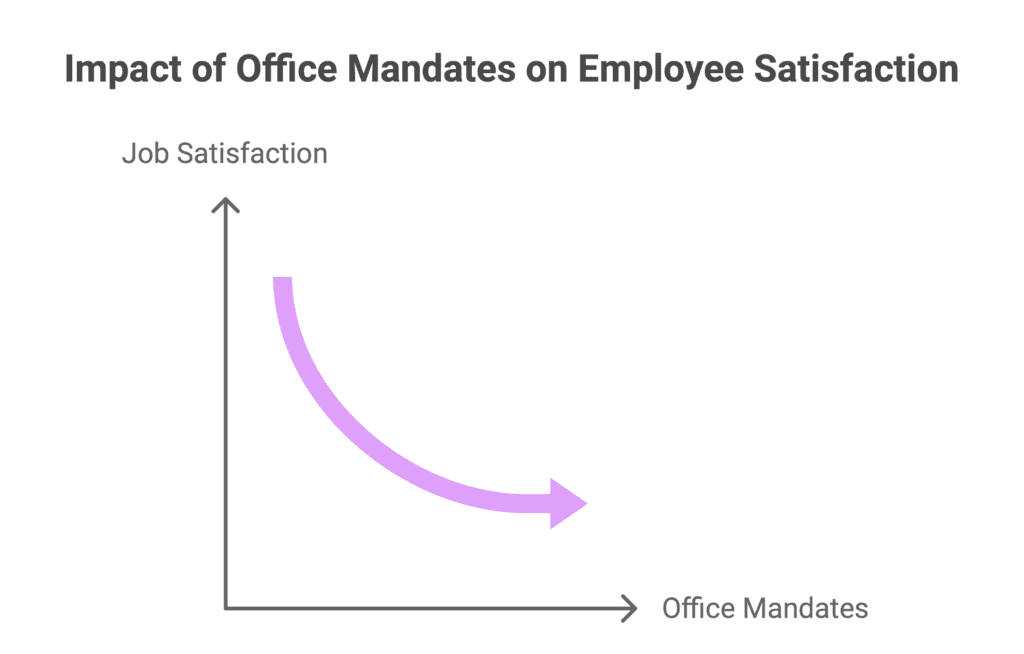
How Companies are Missing the Mark
High-profile companies are enforcing return to office mandates. Meta enforces three days per week in the office. Organisations like Nike, Bank of America and IBM have also mandated a return to office.
Let’s take a look at some examples of RTO struggles:
- Starbucks Return to Office: While Starbucks has embraced hybrid work to some extent, its journey underscores the need to align flexibility with culture.
- Amazon Workers Return to Office: Despite its efforts, Amazon’s hybrid approach faced backlash for poor communication and inconsistent implementation.
- PwC Enforce Return to Office: By doubling down on distrust and rigid policies, PwC risks alienating its workforce and losing top talent.
- Dell Return to Office: Dell’s abrupt return-to-office policy, rolled out with minimal notice, created significant friction among employees.
Employer Perspective: Why Are Companies Pushing a Return to Office?
The Office Nostalgia Effect
For some leaders, the office is where magic happens. They believe in-person work fuels collaboration, sparks innovation, and strengthens company culture. There’s also the perception that employees are more productive under direct supervision. 85% of leaders say that the shift to hybrid work has made it challenging to have confidence that employees are being productive.
But here’s the catch: not all employees see it this way. Remote work has proven that people can collaborate, innovate, and crush their goals from anywhere. Clinging to old norms might be more about leadership comfort zones than actual business needs.
How a Return To Office Mandate Can Backfire
A return to office mandate comes with significant risks:
- Talent Drain: Strict policies can drive away high performers, especially women and millennials who prioritize flexibility (Gartner, 2024).
- Workplace Tension: Mandates send a message that leaders don’t trust their teams, which can erode morale and loyalty.
- Costly Turnover: Losing top talent due to rigid policies isn’t just disruptive—it’s expensive.

Employee Perspective: Understanding Return To Office Resistance
Why Employees Push Back on a Return to Office Mandate
Employees’ resistance to a return to office mandate isn’t about laziness or rebellion—it’s about values, priorities, and practicality. 73% of employees say they need a better reason to go into the office besides company mandates.
- Flexibility First: Workers have experienced the benefits of remote work—more time with family, less stress, and better productivity. Losing that feels like a step backward.
- Commute Fatigue: Long commutes are draining, expensive, and, frankly, unnecessary for many roles.
- Health Concerns: Some employees remain cautious about the risks of shared spaces.
The Emotional Toll
Returning to the office isn’t just a logistical shift; it’s an emotional one. The stress of adapting to new routines, coupled with the perception of lost autonomy, can be overwhelming.
Here’s what employees are dealing with:
- Change Fatigue: After years of adjusting to pandemic life, another abrupt shift feels exhausting. Employees crave stability, not upheaval.
- Distrust Signals: A return to office mandate often sends the message, “We don’t trust you to work remotely.” This perceived lack of faith can crush morale.
- Mental Health Struggles: Anxiety, burnout, and depression are on the rise. For some, the thought of returning to a traditional office setup only adds to the pressure.
What Leaders Can Do:
- Open the dialogue about mental health and offer real support, like counseling or wellness days.
- Gradually transition to hybrid schedules rather than forcing abrupt changes.
- Empower employees to have a say in their schedules—autonomy builds trust.
What Could a Successful Return to Office Look Like?
Flexibility Is the Future
The data doesn’t lie—flexibility is the secret sauce. Companies that embrace hybrid models see better employee retention, engagement, and overall happiness.
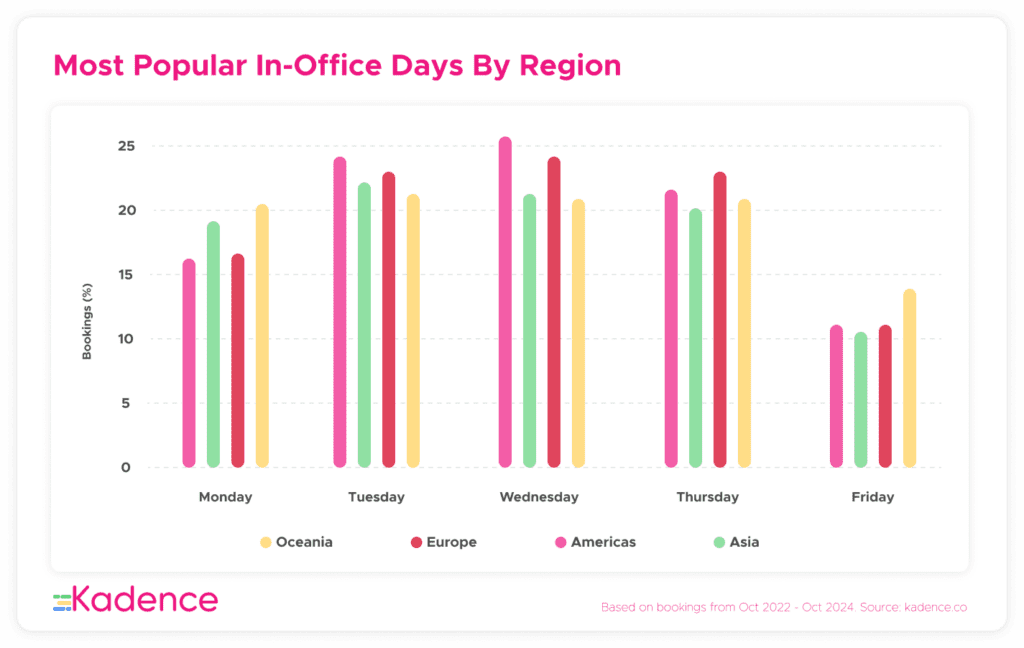
Here’s how to get it right:
- Set Clear Goals: Define the purpose of office time. Is it for collaboration, mentoring, or team building? Communicate this clearly to employees. Consider setting outcomes rather than measuring productivity. Check out Brian Elliot breakdown how to do this.
- Hybrid Models That Work:
- Let employees choose when and why they come in. See how MOO managed to do this. From our customers, we can see that Tuesdays and Wednesdays continue to be the peak in-office days across all regions. Hybrid work patterns show that Europeans and Americans generally head into the office 2-3 days a week, predominantly between Tuesday and Thursday.
- Reserve office time for high-impact activities, not tasks that can be done from home.
- Create a Better Office Experience: Make the office worth the trip with comfortable spaces, collaborative zones, and a focus on wellness. Slack’s latest annual survey, The State of Work 2023, found that more than eight in 10 respondents (82%) said the key driver of their productivity was feeling happy and engaged at work.
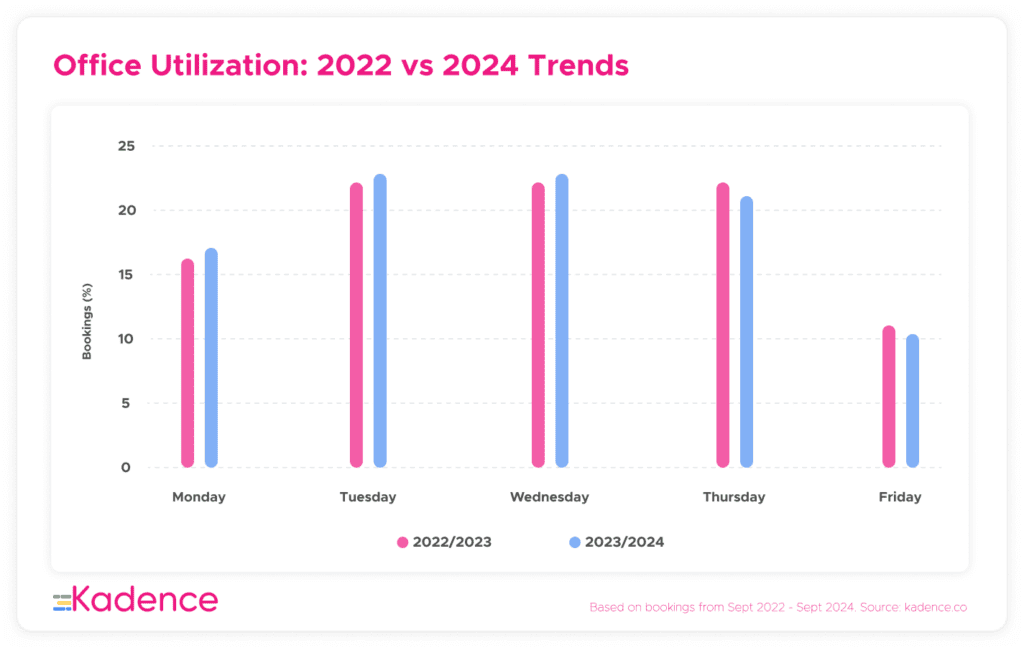
How Kadence Can Help
Kadence takes the guesswork out of hybrid work. Our platform is designed to empower teams and leaders to create seamless, flexible workplace experiences that boost collaboration and efficiency. Here’s how:
- Desk Booking: Employees can reserve their preferred desk ahead of time, ensuring they have the workspace that best suits their needs. With interactive floor plans, teammates can see where others are sitting, making it easy to coordinate and collaborate. For employers, desk booking provides valuable data on office attendance, helping to optimize space usage and identify trends in hybrid work behaviors.
- Room Booking: Streamline meeting planning by allowing employees to book meeting rooms in advance, complete with details on available equipment like whiteboards or video conferencing tools. For employers, room booking ensures that valuable resources aren’t underutilized or double-booked, improving operational efficiency and team productivity.
- Team Coordination: Kadence makes hybrid schedules simple. Employees can align their in-office days with their teammates, ensuring they maximize face-to-face collaboration. For employers, this tool reduces inefficiencies and fosters team cohesion by encouraging in-person interactions during high-impact days.
- Space Analytics: Employers gain actionable insights into how office spaces are being used. Are some areas overcrowded while others sit empty? Is your current layout maximizing productivity? With Kadence’s analytics, leaders can make data-driven decisions to optimize layouts, reduce costs, and design an office environment that truly works for their teams.
Conclusion: Moving Beyond a Return to Office Mandate
A return to office mandate might feel like a quick fix, but they’re not a sustainable solution. The future of work is flexible, empathetic, and built on trust. By ditching rigid policies and embracing hybrid models, companies can create workplaces that are not just productive but also fulfilling.
